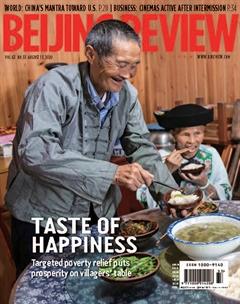Election Delay Aims To Ensure Safety
By Lan Xinzhen
Hong Kong Special Administrative Region(HKSAR) Chief Executive Carrie Lam has announced a one-year delay to the regions Legislative Council general election due to the novel coronavirus disease (COVID-19). Lam made the July 31 announcement in accordance with the Legislative Council Ordinance and the Emergency Regulations Ordinance, setting September 5, 2021 as the new election date. The decision came in response to local residents rising concerns that the crowds in polling stations would increase infections.
A turnout of 70 percent in the election would mean approximately 3 million voters visiting 610 polling stations, a high risk given new cases of COVID-19 in Hong Kong. From July 8 to 30, Hong Kong saw 1,852 confirmed cases, 140 percent higher than the 1,300 reported in the fi rst half of the year. The daily increase in new cases reached a record high of 149 the day before the election was postponed. This new record—along with the facts that 90 percent of the new cases were locally transmitted, and that the health authorities were unable to trace the origins of more than half—points to a situation that may spin out of control. No matter the precautions taken, the elections may bring an unacceptable risk of transmission.
In addition to protecting peoples health, the deferral will make the election fairer since those in quarantine and those trapped overseas can be included in the process.
Given that the pandemic is unlikely to recede in the months to come, containment of the epidemic is the priority for the HKSAR Government. Residents are backing the government, valuing life and health over elections.
The delay is in line with international practice. Rough statistics show that in addition to the oneyear postponement of the 2020 Tokyo Olympics, around 70 countries and regions have delayed national or regional elections in response to the outbreak, including the UKs one-year delay of local council elections, originally scheduled for May.
One exception was the election of the governor of Tokyo on July 5. A surge of COVID-19 cases in that city, with record daily highs in the number of new cases in the weeks after the election, shows the potential consequence of holding elections during the pandemic.
The deferral of this years election in Hong Kong has drawn criticism from certain quarters, with some overseas claiming the delay disrupts the democratic process and freedom in HKSAR. While these accusations are expected, they show a clear double standard, reflecting international biases. The same observers remain silent when Western countries postpone elections while condemning the same action in Hong Kong.
In late July, the HKSAR Government sought the assistance of the Central Government in combating and containing the outbreak in Hong Kong. In response, the Central Government arranged for neighboring Guangdong Province to deliver vital supplies, including face masks and protective suits. It offered to help the HKSAR Government provide free nucleic acid tests for all Hong Kong residents and sent medical workers to Hong Kong. Throughout the outbreak, the HKSAR Government and the Central Government have put the wellbeing of the people in Hong Kong at the top of their agenda.
The real concern brought on by the delay of Hong Kongs election is the vacuum in legislative power it may create in the coming year. One possible solution is to extend the tenure of the current Legislative Council members for an additional year. The HKSAR Government does not have the authority to do this alone. The Central Government will seek a final decision from the Standing Committee of the National Peoples Congress.
At the present stage, the priority for the HKSAR Government and residents is to contain the virus. This is the precondition for Hong Kongs development and for holding the election.

